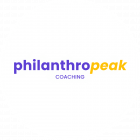Let me guess.
You’ve tried every productivity planner on the shelf. You’ve downloaded five time-blocking apps. You’ve sworn up and down that this week will be different.
But your ADHD routine? Still feels like a house of cards.
One client told me it’s like running a business with ten browser tabs open and your mental Wi-Fi glitching every five minutes.
Here’s the truth:
If you’re neurodivergent, you don’t need another rigid schedule. You need a routine that works with your brain — not against it.
At PhilanthroPeak Coaching, this is what we do all day. We help ADHD entrepreneurs build structure that sticks, systems that hold, and routines that don’t fall apart when your brain’s off its game.
No hustle culture. No cookie-cutter plans. No shame loops.
Let’s build a routine for ADHD that actually gets you results.
Why ADHD Entrepreneurs Struggle With Routine (And Why That’s Not a Problem)
ADHD isn’t a lack of attention. It’s a dysregulation of attention.
And for business owners like us, that messes with:
- Prioritising what matters
- Starting what we know we need to do
- Finishing what we started
- Switching gears without losing momentum
Most routines break down because they’re designed for linear brains, not fast-thinking, creative, constantly-sparking ADHD ones.
You’re not lazy. You’re not unmotivated.
You’re likely trying to use a system built for someone else.
What works instead?
A routine that is:
- Visual
- Flexible
- Anchored (not timed to the minute)
- Built around your actual energy and attention cycles
I’m not here to sell you structure you’ll forget by next week. I’m here to show you how to design a system you can trust — even on your low-focus days.
Core Principles of a Business-Ready ADHD Routine
Here’s how we build ADHD-friendly routines inside The ADHD Business Compass™:
1. Think Visual Over Verbal
You can’t manage what you can’t see.
ADHD routines thrive on visual clarity.
Use tools like:
- Whiteboard calendars (map the week out where you see it)
- Digital dashboards like Notion or Trello
- Sticky notes on your monitor for daily focus
- Colour-coded time blocks to separate tasks
2. Use Anchors, Not Alarms
Time blindness is real.
Instead of setting a strict 9am–10am “deep work” slot, try anchor routines:
- After my first coffee, I check my top 3 priorities.
- When I finish lunch, I knock out admin for 30 minutes.
Tying actions to existing cues helps your brain know what’s next — without the pressure of clocks.
3. Break It Down Ruthlessly
ADHD brains resist vague instructions.
“Work on business plan” is useless. Break it into micro-steps:
- Outline 3 sections
- Brain-dump bullet points
- Write 1 paragraph each
- Add timer: 20 minutes, then break
It’s not about discipline. It’s about clarity.
4. Build In Recovery & Friction-Free Starts
Productivity for ADHD means working with your natural rhythms.
That means:
- Schedule buffer time before and after focused tasks
- Use warm-up tasks (email, brain dumps, cleanup) to kickstart your day
- Reduce startup friction by laying out what tomorrow’s first step is today
This is how you beat the blank-page panic.
Sample ADHD Routine for Business Owners (That Doesn’t Suck by Wednesday)
Let’s get practical.
Here’s a sample ADHD routine that dozens of clients have adapted — not perfectly, but powerfully.
Morning:
- Wake up + no-phone zone for 20 mins
- Quick body movement (walk, stretch, dance)
- Brain dump in notebook or Notion
- Choose top 3 tasks for the day
- Start with 20-minute focus block (Pomodoro style)
Midday:
- Energy slump? Don’t push through. Take a reset.
- Time-block 2–3 focus sprints with breaks
- Use noise-canceling headphones, playlists, or body doubling to stay locked in
Afternoon:
- Shift to low-effort, high-impact tasks: emails, invoices, client check-ins
- Reflect: what actually moved the needle today?
- Plan your top 3 for tomorrow
Evening:
- Visual shutdown: close tabs, tidy desk, write “done list”
- Prep environment cues for tomorrow (sticky note, set tools out)
- Wind down with something screen-free if possible
This routine is flexible, visual, and grounded in energy — not perfection.
Adapt it. Tweak it. Make it yours.
Because ADHD routines fail when they aren’t designed to bend.
Tools That Make ADHD Routines Actually Work
Don’t build your business on memory. Your ADHD brain is brilliant — but it needs scaffolding.
Here are the tools I recommend most:
Planning & Task Management:
- Notion (build a command centre)
- ClickUp (great for teams or scaling)
- Trello (easy visual lists + movement)
Time & Focus:
- Pomofocus – a minimalist Pomodoro timer that works with ADHD focus cycles, not against them
- Toggl Track (track time without friction)
- Flow State App (rewards you for staying focused)
Environment & Cues:
- Big whiteboard = big clarity
- Visual timer = urgency without anxiety
- Standing desk = movement boosts focus
- Accountability partner = externalise your focus
These aren’t hacks.
They’re scaffolds.
When your brain doesn’t want to co-operate, your systems pick up the slack.
That’s the foundation we build inside The ADHD Business Compass™ — one step at a time.
Next up: how to stay consistent without shaming yourself into a burnout loop.
Because even the best ADHD routine will break. That’s not failure.
It’s feedback.
How to Stick to Your ADHD Routine (Even When It All Falls Apart)
Let’s be honest:
You’re not looking for a perfect schedule.
You’re looking for a structure that holds — even when your brain feels like mush, the dopamine’s missing, and your inbox is a war zone.
Here’s how we help ADHD entrepreneurs stay consistent without guilt-tripping themselves into burnout.
1. Expect Your Routine to Break
Don’t design your ADHD routine for your best day.
Design it for your average day.
Build margin. Create backups. Assume interruptions.
Think:
-
“If I only do my Top 1, the day still wins.”
-
“If I derail, I can restart at the next anchor.”
Flexibility isn’t failure — it’s a feature.
2. Set Weekly “Reset” Points
You need regular check-ins, not long-term perfection.
Every Friday (or Monday, or whatever works), do a 15-minute reset:
-
Clear out to-dos you didn’t touch
-
Review what worked / what dragged
-
Recommit to your anchor routines
Your ADHD routine is alive — it evolves as you do.
3. Stack Wins, Not Pressure
ADHD brains crave dopamine. But pressure kills motivation.
So make your routine feel rewarding:
-
Use visual progress bars or habit streaks
-
Reward yourself after hard-focus blocks
-
Make boring tasks fun with music or movement
-
Track effort, not just outcome
Momentum matters more than intensity.
4. Use Low-Focus Days to Prep for High-Focus Work
Not every day needs deep work.
On off days, work the edges of your routine:
-
Organise your workspace
-
Prep tomorrow’s tools
-
Archive tasks or declutter your task manager
-
Reconnect with your why
This keeps you moving forward without forcing high output when your brain’s on low power.
The ADHD Business Compass™: Your Co-Created Routine Engine
If you’re done piecing routines together from random TikToks, it might be time to build your system from the ground up.
Inside the ADHD Business Compass™, we do four things:
🔍 Locate
We map out your current reality — what’s working, what’s leaking energy, and what needs simplifying.
🎯 Align
We create ADHD-friendly routines and systems for your marketing, delivery, and revenue models.
🧭 Navigate
We build your weekly structure using visual tools, flexible routines, and accountability frameworks.
🚀 Expand
We plan for growth without overloading your executive function — so you scale sustainably, not chaotically.
This isn’t another one-size-fits-all productivity plan.
It’s a real-world ADHD routine builder — adapted to how you think, feel, and lead.
It’s not a map.
It’s your compass.
ADHD Routine FAQs
How do I start building an ADHD routine when everything feels chaotic?
Start with one anchor. Not a full schedule.
Example: After breakfast, I plan my top 3 tasks.
One anchor → leads to momentum → leads to routine.
Don’t try to overhaul everything. Layer, don’t leap.
What if I can’t stick to my ADHD routine consistently?
You’re not meant to.
Routines break. That’s normal for ADHD brains.
What matters is your ability to reset.
Have visual reminders. Use backup anchors. Let “messy” routines still count.
Do I need special tools or apps for an ADHD-friendly routine?
Nope.
You can start with a notebook and a timer.
But visual tools like Notion, Trello, and Pomofocus can make a huge difference in helping your brain see what’s next — and act on it.
Can I use an ADHD routine to grow my business without burning out?
Yes — that’s exactly what we teach at PhilanthroPeak Coaching.
A solid ADHD routine helps you:
-
Focus on what matters
-
Automate repeat tasks
-
Create systems that don’t rely on willpower
-
Recover faster from low-focus days
It’s how ADHD entrepreneurs scale without the crash.
How do I build an ADHD routine that doesn’t feel boring or repetitive?
Make it feel like you.
-
Add variety (switch tools or methods weekly)
-
Use different focus zones in your workspace
-
Rotate playlists, rewards, or accountability setups
-
Use visuals — not endless checklists
Your ADHD routine should energise you, not trap you.
What if I’m already overwhelmed and can’t figure out where to start?
You don’t need to figure it all out alone.
That’s why we built the ADHD Business Compass™ — a co-created roadmap to help you build routines, systems, and focus structures that don’t rely on guesswork.
Let’s build it together.
Final Thoughts: Your ADHD Routine Is a Leadership Tool
Here’s the kicker:
A solid ADHD routine isn’t about “fixing” your brain.
It’s about leading your business with clarity — on the days you feel unstoppable and the days you don’t.
You don’t need more pressure.
You need more clarity.
You need a system that adapts to your wiring.
You need tools that make focus easier, not harder.
You don’t need to work harder — you need a better rhythm.
This is the work we do at PhilanthroPeak Coaching.
We help ADHD entrepreneurs stop chasing consistency and start building systems that hold — so your brain can focus on creating, leading, and scaling.
If you’re done with routines that fall apart by Wednesday…
Let’s build one that lasts.


